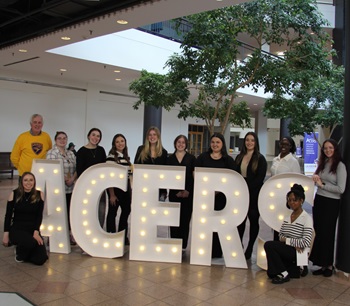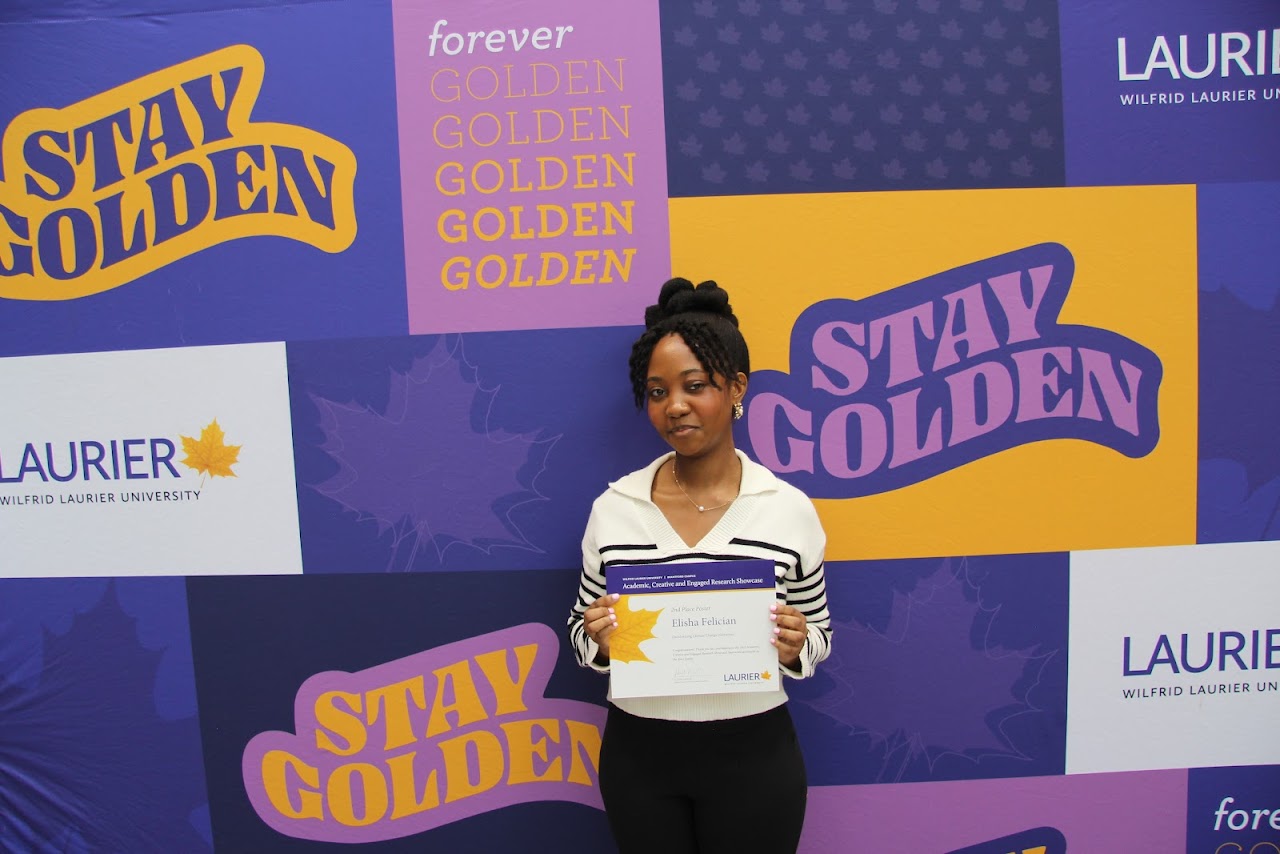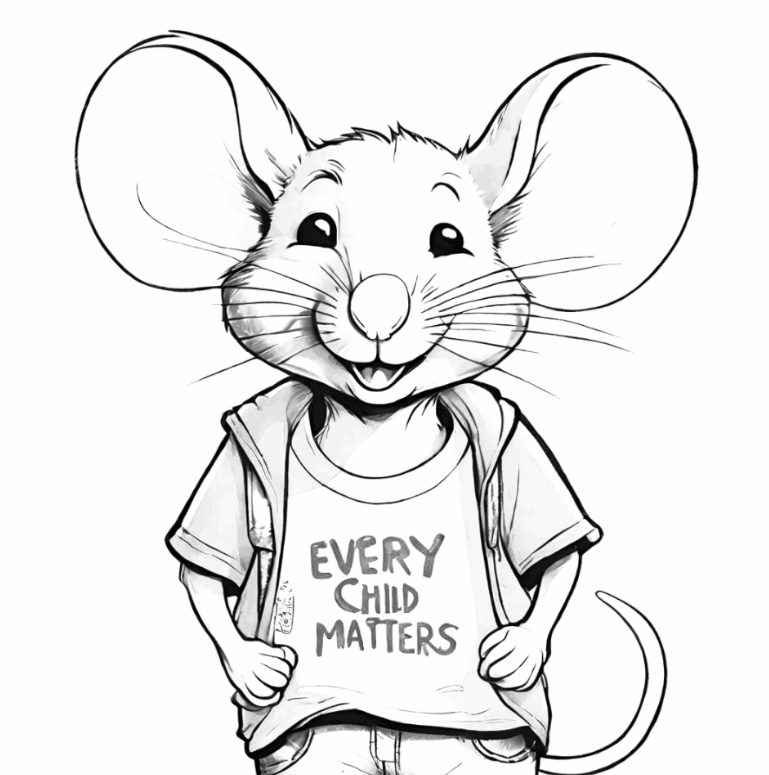We use cookies on this site to enhance your experience.
By selecting “Accept” and continuing to use this website, you consent to the use of cookies.

Each year, undergraduate students at Laurier Brantford are invited to submit their research projects to the Academic, Creative and Engaged Research Showcase, or ACERS. Students have the option of a poster presentation, a podcast or a video presentation when showcasing their work. The Indigenous Studies, Law and Social Justice department contacted several students, who participated in ACERS as part of their Indigenous Studies and Law and Society classes, to get a little more insight into their research.
Elisha's poster presentation, "Decolonizing Climate Change Narratives", analyzed climate change reports from countries in the Global South with an intersectional, feminist, anti-oppressive framework to highlight gaps within climate change discourse where marginalized voices might be overlooked or undervalued.

Did any element of your research surprise you when you discovered it?
Elisha: I used reports written by governments in the Global South to the International Court of Justice. The reports aimed to clarify the legal duties of nations in relation to climate change. However, despite bearing the the most disastrous effects of climate change, the developing nations were surprisingly less radical than I expected. They did not directly challenge the systems and historical processes (colonialism, industrialization, enslavement, etc.) that contributed to climate change. It showed that making meaningful progress to curtailing climate change was in the hands of grassroots movements.
Mackenzie's poster presentation, "Gayogo̱hó:nóˀ/Cayuga Novice Learning Resources", originated in the Indigenous Studies course ID230 (Indigenous Languages of Turtle Island), where Mackenzie wanted to create immersion language learning resources as a means of giving back to the community that shared knowledge, culture and language with the class during their time together.
What was your favourite part of your research project?
Mackenzie: Doing this research project, I really felt the pay-off, that was different. This project left the classroom, could be expanded on, and actually had an impact in the community. It was so satisfying, not only because the project was community-based and helped real people, but also seeing my hard work be displayed, providing exposure for the project, and getting more people involved. There were so many people who came to the event that were genuinely interested in learning about my project; sharing that space and engaging with everyone's thoughts, ideas and hard work was really special.
Breanne and Carissa's video is a read through of their creative research project, "Dream Catcher", inspired by stories of residential school survivors, to uplift their voices, and to start conversations about truth and reconciliation in the classroom.

Are there any changes in society you hope to see because of your research and its outcomes?
Carissa: This work was very personal as it honoured my family's experiences, pain, and the strength they passed on to me. I want Indigenous children to feel seen, to know they belong, be proud of who they are and where they come from. I want non-Indigenous children to grow up as accomplices who challenge the dark cloud of systemic racism looming over our heads. If one child learns to listen with compassion and truly see the hidden messages, while asking hard questions, this work will have done what it was meant to do.
Do you have any encouragement for undergraduate students who might want to do a research project of their own?
Breanne: Stay open to continuous learning and be willing to challenge what you think you know. Research isn't just about finding answers, it's about expanding your perspective and being a lifelong learner. If you're working with communities or stories — especially stories that don't belong to you — approach them with humility, care, and respect. Some of the most meaningful growth happens when you're listening, especially to voices that have been historically silenced or overlooked.
Kaitlyn's research project, "Change is Among Us: Understanding the Impact of Technology in the Courtroom" was a series of interviews with practicing lawyers across diverse demographics and areas of legal practice. Interview data was analyzed by identifying and sorting themes, highlighting the expectations and concerns that legal professionals have with regards to technology use in the courtroom. Rapid advancements in technology, such as the use of Generative AI, and legal standards of fairness, impartiality and justice mean that research in this field will continue to be important.
Congratulations to all the ACERS participants on their accomplishments!